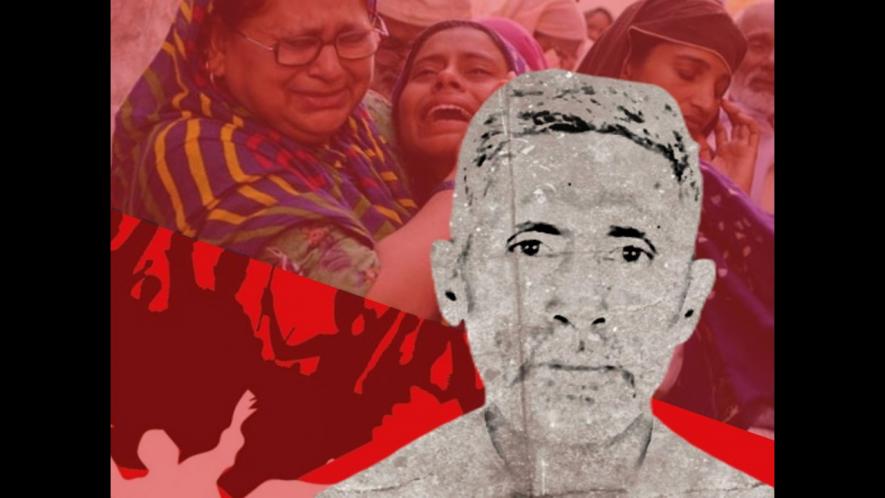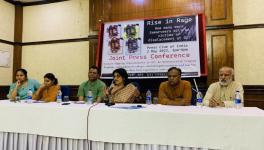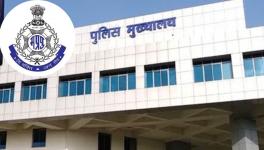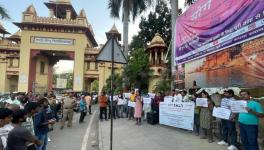Five Years Since Dadri Lynching: Whither the Laws?

Today marks five years since Mohammad Akhlaq was lynched to death outside his house in Dadri. To mark the day, we discuss the trajectory of some of the lynching cases in the past few years and share some material from the archives that raises questions about the lack of justice in lynching cases.
On September 28, 2015 Mohammad Akhlaq was dragged out of his house in Bishara village of Uttar Pradesh and beaten to death by an angry mob. The announcement by a local Hindu Temple that Akhlaq’s family had consumed and stored beef, provoked the mob to launch the brutal attack on his family. While Akhalq’s son survived through the multiple injuries inflicted on him, Akhlaq died a few days later. Five years after the incident has Akhlaq's family received justice? By 2018 the family members had attended 45 hearings in a ‘fast track’ court and the trial was yet to start.
A database maintained by The Quint of incidences of mob violence, reveals that there have been total 113 deaths due to lynching between 2015 to September 2019. The question is- how many of these cases went through a proper investigation and trial? On the contrary, in many instances the family of the victims had cases filed against them, while the perpetrators were either out on bail, or attending BJP rallies.
A year after Akhalq’s murder in 2015, the court ordered that FIR should be registered against his family under the UP Cow Protection Act. Pehlu Khan’s case is an interesting example to understand what happens to perpetrators and victims in mob violence cases. Who suffers punishment and who is let off the hook? In April 2017, Pehlu Khan and his two sons were attacked by cow-vigilantes in Alwar, Rajasthan as they were transporting cattle. Two days later Pehlu Khan succumbed to his injuries and a case was filed against him and others accompanying him- including his two sons- under the Rajasthan Bovine Animal (Prohibition of Slaughter and Regulation of Temporary Migration or Export) Act.
Two years after this horrific incident, in August 2019, six out of the nine accused were acquitted by a local court in Alwar, citing lack of evidence, while Pehlu Khan’s sons were chargesheeted in the case against them. Interestingly, two out of the nine accused, who were minors at the time of the incident, were convicted by the Juvenile Justice Board in March earlier this year.
Just a week after the Modi government came to power in 2014, a young IT professional, Mohsin Sheikh was lynched to death in Pune by a mob of Hindu Rashtra Sena. His family still awaits justice.
The bias of our criminal justice system against muslims becomes apparent as one delves more deeply to find out the journey of the families seeking justice in the mob lynching cases. In another disturbing case of Tabrej Ansari the police can be seen as complicit in his killing. Ansari was beaten by a mob, who thought he was a thief and was forced to chant ‘Jai Shri Ram’. The police kept him in custody when he was severely injured and has not filed a case against people who attacked him. A fact finding report by Jharkhand Janadhikar Mahasabha states that he denied him proper medical treatment. The police had also decided to drop down the chare of murder from the FIR stating that his death was due cardiac arrest. A 2017 report by Citizens Against Hate also speaks of complicity of police in cases of mob violence, as the investigation is shoddy and there is a delay in FIRs in many cases.
Supreme Court guidelines
In July 2018, the Supreme Court in the judgment in Tehseen S. Poonawalla had issued several directions to the central and the state governments to curb mob violence. The court was also monitoring the compliance by the government to those guidelines.
However, the matter was last heard on September 24, 2018 and since then the case has not moved forward, while the cases of mob lynching continue unabated. The Ministry of Home Affairs maintains that the government cannot provide data on number of deaths caused by lynching as it does maintain data specifically on lynching incidents in the country.
This article was first published in the Indian Cultural Forum.
Get the latest reports & analysis with people's perspective on Protests, movements & deep analytical videos, discussions of the current affairs in your Telegram app. Subscribe to NewsClick's Telegram channel & get Real-Time updates on stories, as they get published on our website.
























